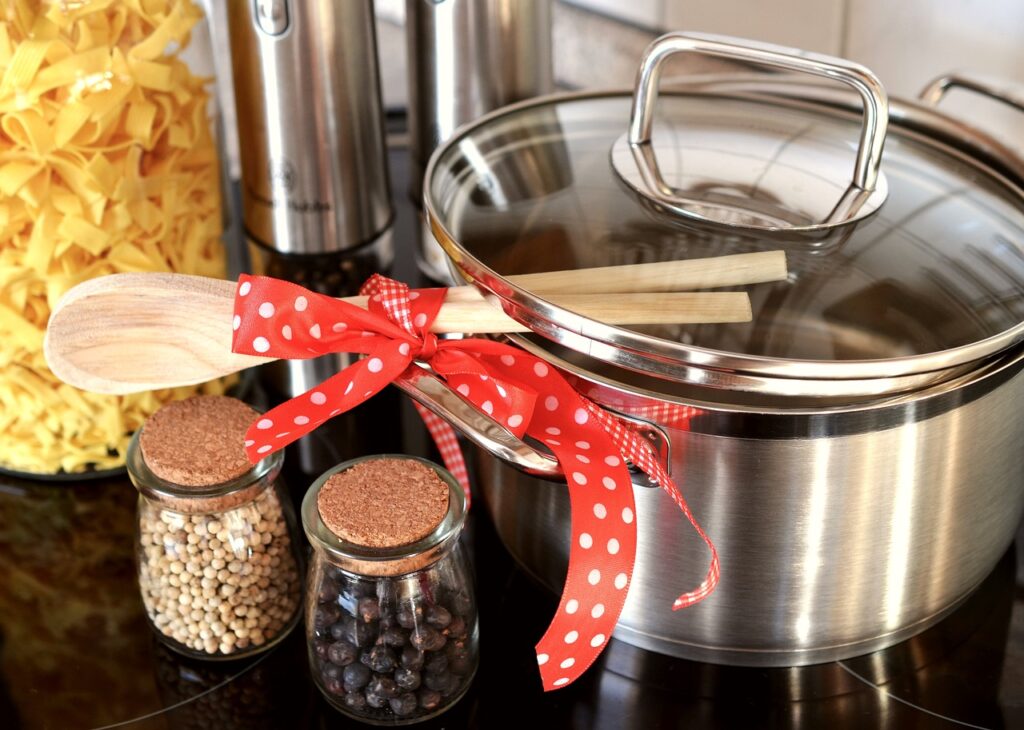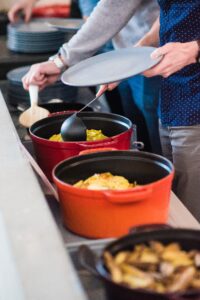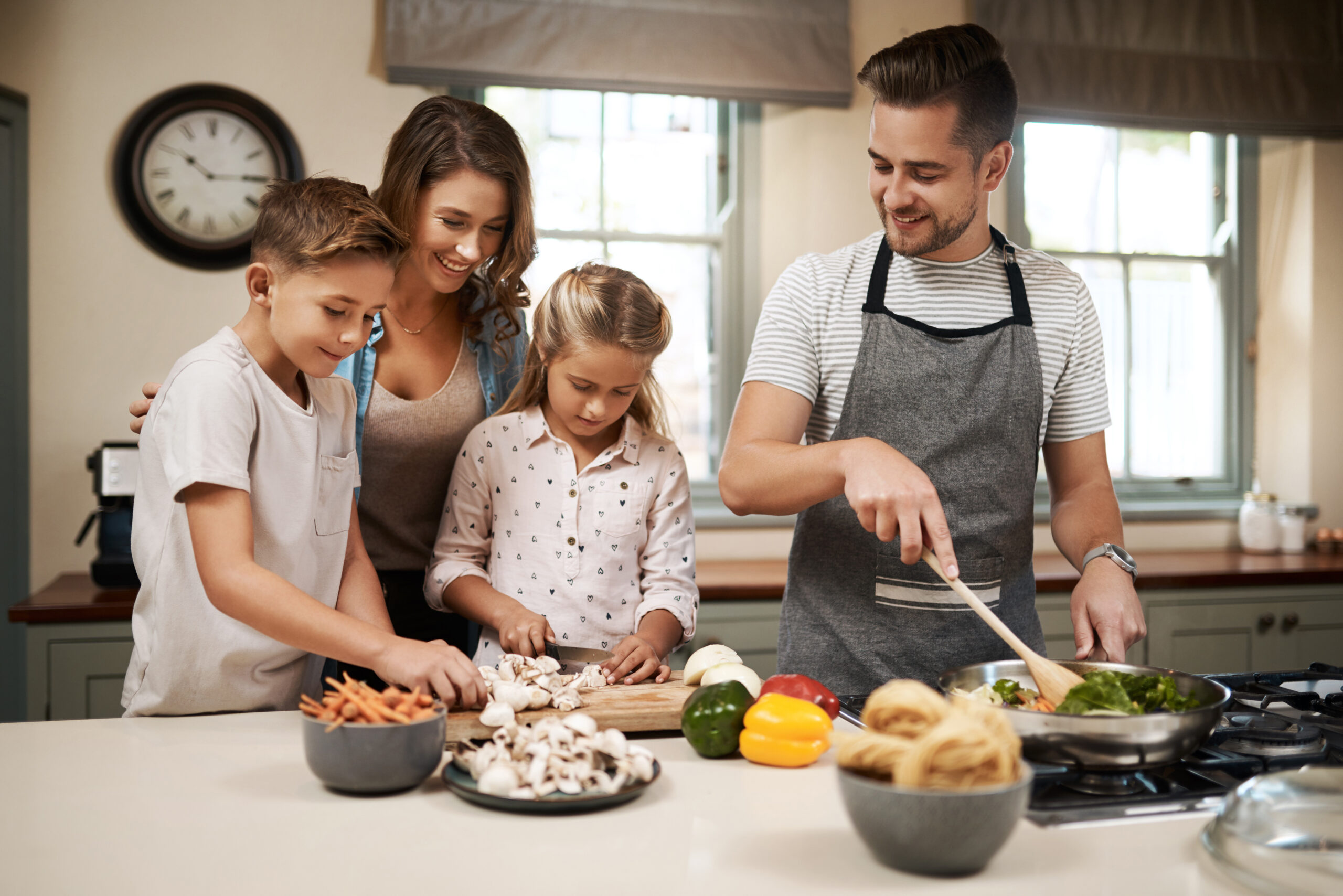If you’re a fan of Calphalon cookware, you’ve probably wondered whether or not you need to grease your Calphalon cookware pan before cooking. This FAQ article aims to provide answers to one of the most frequently asked questions about Calphalon cookware: Do you need to grease a Calphalon pan? Whether you’re a seasoned chef or a novice in the kitchen, read on to discover the essential information you need to know about greasing your Calphaloncookware pan for optimal cooking results.

FAQ: Greasing a Calphalon Cookware Pan
Welcome to our comprehensive guide on greasing a Calphalon pan! Whether you’re a seasoned chef or a novice in the kitchen, we understand that cooking with quality cookware is essential. Calphalon pans are known for their superior performance and durability, but many people have questions about whether or not these pans need to be greased. In this article, we will answer all your burning questions and provide you with the information you need to make the most out of your Calphalon pan.
Can I use a Calphalon pan without greasing it?
Is greasing necessary? The short answer is no, you don’t have to grease a Calphalon pan. Calphalon pans are designed with non-stick coatings that reduce the need for excessive greasing. However, greasing your pan can provide additional benefits and enhance your cooking experience.
But what are the potential risks of not greasing a Calphalon pan? Without greasing, there is a chance that food may stick to the pan, making it difficult to clean and potentially damaging the non-stick surface. Additionally, not greasing a Calphalon pan may result in uneven heat distribution, leading to inconsistent cooking results.
Why should I grease a Calphalon Cookware pan?
While greasing a Calphalon pan may not be mandatory, it offers several advantages that can improve your overall cooking experience. Here are a few reasons why you might consider greasing your pan:
- Enhancing non-stick performance: Even though Calphalon pans have non-stick coatings, greasing the pan can provide an extra layer of protection, making it even easier to release food.
- Preventing food from sticking: Greasing your pan helps create a barrier between the food and the pan’s surface, reducing the chances of food sticking and improving the food’s overall presentation.
- Promoting even heat distribution: When you grease your pan, the oil acts as a heat conductor, helping distribute the heat more evenly over the entire cooking surface.
- Facilitating easy food release: Greasing the pan ensures that your food slides effortlessly out of the pan, minimizing the risk of food breakage or tearing.
- Extending the lifespan of the pan: Proper greasing helps protect the non-stick coating on your Calphalon pan, preserving its longevity and preventing premature wear and tear.
- Adding flavor and preventing dryness: By greasing your pan, you can enhance the flavor of your food and prevent it from drying out during the cooking process.
- Creating a barrier between food and the pan: Some ingredients, such as eggs or delicate fish, can be prone to sticking. Greasing the pan can provide a protective layer, preventing these delicate foods from sticking and getting ruined.
- Facilitating easier cleanup: Greasing your pan can significantly simplify the cleaning process. The greased surface makes it easier to remove any residual food particles, resulting in a quicker and more efficient cleanup.
What type of oil should I use to grease a Calphalon cookware pan?
Choosing the right oil for greasing your Calphalon pan is crucial. It’s important to select an oil with a high smoke point to prevent it from breaking down and releasing harmful compounds into your food. Additionally, considering the flavor profile of the oil is essential to ensure it complements the dish you’re preparing. Here are some guidelines to help you choose the right oil:
- Choosing the right oil: Opt for oils with high smoke points, such as canola, vegetable, peanut, or grapeseed oil. These oils offer stability at higher cooking temperatures, preventing them from degrading or burning.
- Recommended oils for Calphalon pans: Canola oil is a popular choice due to its mild flavor and high smoke point. Vegetable oil also works well as it has a neutral taste. Peanut oil, known for its high smoke point and subtle nutty flavor, is another excellent option.
- Avoiding oils with low smoke points: Oils with low smoke points, such as extra virgin olive oil, are not recommended for greasing a Calphalon pan. These oils can burn at high temperatures and may leave behind a residue that is challenging to clean off.
- Considering flavor profiles: If you desire a hint of flavor in your dish, you can select oils like sesame oil or coconut oil, which can add a unique taste to your cooking.

Can I use cooking spray on a Calphalon cookware pan?
Cooking sprays can be a convenient way to grease a pan, but it’s crucial to follow the manufacturer’s instructions and consider the type of pan you are using. When it comes to Calphalon non-stick pans, it is generally safe to use cooking spray as long as it is specifically labeled for use on non-stick surfaces. However, it is always a good idea to check the instructions that come with your Calphalon pan or consult the manufacturer’s website to ensure you are using the cooking spray correctly.
How do I grease a Calphalon cookware non-stick pan?
Greasing a Calphalon non-stick pan is a straightforward process. Follow these steps to ensure proper greasing:
- Step 1: Clean and dry the pan: Before greasing, make sure your Calphalon pan is clean and free from any food remnants. Wash it with warm, soapy water, rinse thoroughly, and dry it completely.
- Step 2: Choose an appropriate oil: Select the oil that best suits your cooking needs, considering the factors discussed earlier.
- Step 3: Apply a thin layer of oil: Pour a small amount of oil onto a paper towel or pastry brush, then spread it evenly across the entire cooking surface of the pan. Be careful not to use excessive amounts of oil, as this can lead to a greasy residue on your food.
- Step 4: Preheat the pan: Once the oil is evenly distributed, preheat the pan over medium heat for a few minutes. This helps the oil bond with the non-stick coating, enhancing its effectiveness.
- Step 5: Cook as desired: Once the pan is adequately preheated, you can start cooking your food as you normally would. Appreciate the enhanced non-stick performance and even heat distribution achieved by properly greasing the pan.
- Step 6: Cleaning after use: After cooking, allow the pan to cool before cleaning it. Use warm, soapy water and a soft sponge or cloth to gently remove any leftover oil or food particles. Avoid using abrasive cleaning tools that could damage the non-stick coating.
How often should I grease a Calphalon pan?
The frequency of greasing your Calphalon cookware pan depends on how often you use it and the specific cooking needs of each dish. As a general rule of thumb, it is recommended to grease the pan before each use. However, if you are using a Calphalon pan with a durable non-stick coating, you may find that greasing is only necessary for more delicate or sticky foods. Pay attention to the condition of the surface and re-grease your pan as needed.
There are a few signs that indicate the need for re-greasing. If you notice food starting to stick to the pan or the non-stick surface becoming less effective, it’s time to reapply a thin layer of oil to restore its performance.

Can I use butter to grease a Calphalon pan?
Yes, you can use butter to grease a Calphalon cookware pan, but there are a few considerations to keep in mind when using it:
- Using butter on a Calphalon pan: Butter adds a rich and delicious flavor to dishes, making it a popular choice for greasing pans. However, due to its lower smoke point compared to oils, it is essential to use it with caution. Use a moderate heat setting to prevent the butter from burning and potentially affecting the taste of your food.
- Considerations when using butter: Butter contains milk solids that can brown quickly and potentially stick to the pan’s surface. To prevent this, consider clarifying the butter or combining it with a small amount of oil to raise the smoke point slightly. This will help maintain the integrity of your Calphalon pan and prevent food from sticking.
Can I cook without any type of greasing in a Calphalon cookware pan?
While it is technically possible to cook without any greasing in a Calphalon pan, it is generally not recommended. Greasing the pan provides several benefits, such as easier food release, even heat distribution, and preventing food from sticking. However, if you are cooking foods with high fat content, such as bacon, you may be able to get away with minimal or no greasing due to the fat naturally rendering from the food itself.
Keep in mind that not greasing a Calphalon pan may lead to food sticking, uneven heat distribution, and potentially damaging the non-stick coating. To ensure a smooth cooking process and protect your investment in quality cookware, it is advisable to use some form of greasing when using a Calphalon pan.
Can I use olive oil to grease a Calphalon cookware pan?
Yes, olive oil can be used as a greasing option for a Calphalon pan, but be mindful of a few considerations:
- Using olive oil as a greasing option: Extra virgin olive oil is not recommended for greasing a Calphalon pan due to its low smoke point and delicate flavor. However, regular olive oil or light olive oil can be suitable alternatives. These types of olive oil have higher smoke points, ranging from 390°F to 410°F, making them more suitable for greasing a pan.
- Considerations when using olive oil: While olive oil can add a pleasant flavor to your dishes, the distinct taste may not complement every type of cuisine. Consider the flavor profile of your dish and how it might interact with the flavor of olive oil before using it as a greasing option. Additionally, be mindful of the smoke point, as exceeding it can result in a bitter taste and potentially damage the non-stick coating of your Calphalon pan.
By following these guidelines and considering the specific characteristics of your Calphalon pan, you can enjoy the benefits of greased cooking without compromising on taste or the integrity of your cookware. Happy cooking!




